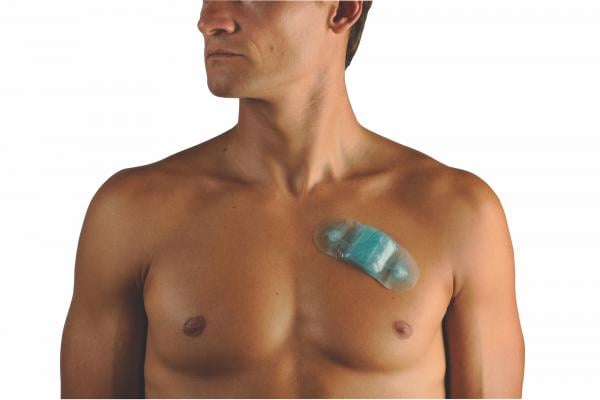
May 17, 2018 — A new study published in JAMA Cardiology used the Zio continuous cardiac monitoring system by iRhythm to provide a comprehensive picture of the burden of atrial fibrillation (AF) in patients. Utilizing this data in combination with electronic health record data, the researchers concluded that an increase in AF burden is independently associated with a higher risk of ischemic stroke and arterial thromboembolism in patients who are not taking anticoagulant medication.
The Kaiser Permanente Real-World Heart Monitoring Strategy Evaluation Treatment Patterns and Health Metrics in Atrial Fibrillation (KP-RHYTHM) study derived its findings from a retrospective cohort of 1,965 patients at two large integrated healthcare delivery systems. All patients underwent up to 14 days of continuous ambulatory electrocardiogram (ECG) monitoring using Zio by iRhythm and were found to have paroxysmal (intermittent) AF. By using Zio by iRhythm to measure heart rhythm, the researchers were able to overcome limitations of previous studies that only looked at patients undergoing cardiac monitoring via invasive and expensive devices.
True AF burden, as detected and measured by the Zio Service, gives physicians a comprehensive understanding of the amount of time a patient’s heart spends in AF over the extended monitoring period. This is achieved through Zio’s longer wear time and ability to bridge AF episodes that may be separated by noise or artifact. The results of the study show that the total burden of AF was the key indicating factor for stroke risk, as opposed to longer individual AF episodes with smaller overall burden. The results show that an AF burden lasting more than 11 percent of the total time their heart rhythm was monitored was found to be associated with a three-fold increase in stroke risk, independent of other known risk factors in those patients.
“There is an emerging recognition of the importance of AF burden as a potentially better measure of stroke risk, which is underscored by the recent AHA Scientific Statement ‘Atrial Fibrillation Burden: Moving Beyond Atrial Fibrillation as a Binary Entity’,” said Elsayed Z. Soliman, M.D., professor and director, Epidemiological Cardiology Research Center, Wake Forest University School of Medicine, Winston Salem, N.C. “Studies like the KP-RHYTHM study demonstrate how advances in cardiac monitoring technology enhance our understanding of AF burden, which could help improve the current standards of care and improve patient outcomes.”
Strokes associated with AF tend to be more severe and are associated with higher mortality. By providing a deeper understanding of the link between burden of AF with risk of stroke, this study can have a direct impact on clinical decision making to prevent stroke, as it provides another stroke risk indicator that physicians can evaluate and share with their patients while discussing stroke prevention.
The research was led by Alan Go, M.D., chief, cardiovascular and metabolic conditions research at Kaiser Permanente.
For more information: www.jamanetwork.com/journals/jamacardiology


 December 19, 2025
December 19, 2025 









